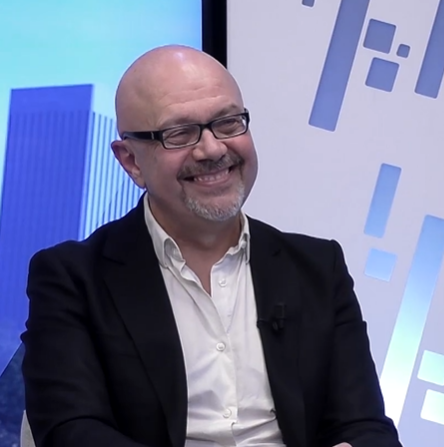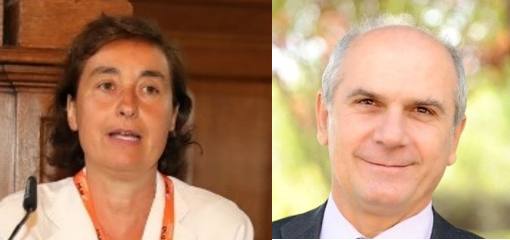RSPP Special Issue Award | Winners 2023
RSPP Special Issue Award
For the Best Special Issue Editors in Regional Science Policy and Practice
RSPP Special Issue Award aims to stimulate the quality of an enlarged editorial team focused in the edition of Special Issues.
RSPP Special Issue Award prizes the special issues with more than seven papers, published two years before based on their citations per paper and the judgement of a jury composed by three Fellows, the President and the Immediate Past President.
Winners 2023
Following the rules of the RSPP Special Issue Award the recipients of the RSPP Special Issue Award in 2023 based on the special published in 2021 and approved by the Jury composed by Hans Westlund, Eduardo Haddad, Gordon Mulligan, David Plane and Phillip McCann are:

1st Place Neil Reid for the Special Issues on “Effects and Policies of Covid-19” with 8 papers and 44 Cite Score citations (ratio 5,50) in September 2023.
|
|
 
2nd Place Eveline S. van Leeuwen and Solmaria Halleck Vega for the Special Issue “Voting and the rise of populism: Spatial perspectives and applications across Europe” with 10 papers and 50 Cite Score Citations (ratio 5,00) in September 2023. |
|

3rd Place Paolo Postiglione for the Special Issue “New directions for regional analysis: Methods and applications” with 11 papers and 49 Cite Scores citations (ratio 4,45) in September 2023. |
Call for candidatures for new RSAI president
Dear Members of the Regional Science Association International,
according to the RSAI Constitution, each first year of term of the RSAI President, the Association faces the pleasant task of electing the Incoming President, who will in 2024 take on the position of President Elect, and work along with Prof. Hans Westlund, current RSAI President, to gradually move on to the position of President in 2025. Here is an excerpt of the rules of the Association for managing this important step:
Nomination committee. The RSAI Council has appointed a dedicated nomination committee, that following the rule of the RSAI Constitution is made up of the RSAI President (Hans Westlund), the RSAI Immediate Past-President (Eduardo Haddad), four members of the RSAI Council (one each from among the council members who are appointees of the four superregional organizations: Eveline Van Leeuwen for ERSA, Lily Kiminami for PRSCO, Carlos Azzoni for LARSA; Sandy Dell'erba for NARSC), and two members of the Long Range Planning Committee (LRPC) recommended by the LRPC itself (Kingsley Haines and Yoshiro Higano).
Criteria of the nominees. The nominees should satisfy the following criteria: a) financial resources sufficient to cover travel costs to perform RSAI duties; b) support from candidate’s institution including relaxation of duties to enable President to travel as needed to execute RSAI business; c) RSAI Council experience (Council member experience) and/or other service to the regional science community (e.g., supra-regional and/or other sections, editor or one of the regional science journals, etc.).
Election procedure. The President Elect nomination committee shall [...] make a recommendation to Council at a Council meeting of this same year . Upon receiving this recommendation, the Council will select a nominee. The President‐Elect and Vice‐President shall start his/her appointment at the start of the next calendar year (i.e. the second year of the current President’s term).
RSAI members from the PRSCO area who want to be nominated as candidate for the President of the Regional Science Association International should send to This email address is being protected from spambots. You need JavaScript enabled to view it. (cc-ing the RSAI ED at This email address is being protected from spambots. You need JavaScript enabled to view it.) within Oct. 14, 2023 the following material:
- A two-page CV and a Picture;
- A two-page statement on the motives in support of the candidacy and on the future strategy for the RSAI.
The Nomination Committee will then nominate the candidates to be voted on-line by the Members of the Council. Results will be diffused through in RSAI webpage.
Thank you in advance for participating in this crucial stage of the Association's life,
Kind regards,
Andrea Caragliu
RSPP Workshop | Enlargement of the Western Balkan region in the European Union, 29 September 2023, Pristina, Kosovo
RSPP Workshop
Enlargement of the Western Balkan region in the European Union
29 September 2023, Pristina, Kosovo
The scientific journal Regional Science Policy and Practice belongs to Regional Science Association International and it is committed to promote the development of Regional Science across the globe specifically through the promotion of special issues on nurtured by workshops.
The main purpose of this workshop is to mobilize and nurture talents across the Western Balkans, publish a special issue of the journal on European Integration in Western Balkans and support RSAI in the creation of regional science sections in Western Balkans.
The workshop seeks to enhance participants understanding of recent developments and methodologies that could be useful for spatial and regional analysis facilitating the European integration and implementation of sustainable development goals in the Western Balkan region. Spatial assessment is more important to our understanding of economic and geographical problems, the workshop will develop the skillsets and knowledge of regional scientist to be able to analyse and understand complex spatial problems and to apply these tools in developing innovative research, in policy making and further expanding research capacities in the Western Balkan region.
Through this workshop, participants will be able to learn and apply spatial econometric models, geographic data, agglomeration and movement of labour and capital to make informed policy decisions that can facilitate the European integration process. Participants will have the opportunity to present their research and receive constructive feedback from peers and senior scholars.
Submission of abstracts: before 10 Sept. 2023
https://wbalkansworkshoppr.wixsite.com/my-site-1/submissions
ERSA Monthly E-news - August 2023
|
|
|
|
|
|
|
|
|
|
|
|
|
|
|
|
|
|
|
|
|
|
|
|
|
|
|
|
|
|
|
|
|
|
|
|
Nominations for RSAI Councilors-at-large
Dear RSAI members,
By RSAI Constitution, nominations for Councilors-at-large “shall be made by the Council after solicitation of suggestions from the members of the Association”. At the end of 2023, the position on the RSAI Council held by Prof. Isabelle Thomas,(Université Catholique de Louvain), Prof. Jouke Van Dijk (Rijksuniversiteit Groningen) and Prof. Rosella Nicolini (Universitat Autonoma de Barcelona) will expire; we therefore inform that the proposals for a councilor-at-large can be sent to the address This email address is being protected from spambots. You need JavaScript enabled to view it. (cc-ing RSAI's ED at This email address is being protected from spambots. You need JavaScript enabled to view it.) within September 30, 2023. Candidatures will have to include a professional CV and a photo.
The election of a councilor-at-large for the period 2024-2026 will take place electronically by RSAI members during the month of October 2023.
Thank you in advance,
Kind regards,
The New Issue of Regional Statistics is already Available! (2023, VOL 13, No 4)
THE NEW ISSUE OF REGIONAL STATISTICS IS ALREADY AVAILABLE!
We are pleased to inform you that a new issue of the Regional Statistics has been released and now it’s available online.
https://www.ksh.hu/terstat_eng_current_issue
REGIONAL STATISTICS, 2023, VOL 13, No 4.
STUDIES
Balázs Tóth – Gyula Nagy: Digital skill-based centre-periphery differences in Europe, 2019
http://www.ksh.hu/statszemle_archive/regstat/2023/2023_04/rs130401.pdf
Kostas Rontos – Maria-Eleni Syrmali – Luca Salvati – Ioannis Vavouras : Socioeconomic development and corruption: A global panel regression analysis, 2005–2019
http://www.ksh.hu/statszemle_archive/regstat/2023/2023_04/rs130402.pdf
Fernando Delbianco – Andrés Fioriti – Fernando Tohmé: Designing a contemporaneity index: Detecting regional similarities in South America, 1961–2018
http://www.ksh.hu/statszemle_archive/regstat/2023/2023_04/rs130403.pdf
Isaiah Maket – Izabella Szakálné Kanó – Zsófia Vas: Estimations of pooled dynamic panel data model with time-space dependence of selected Sub-Saharan African urban agglomerations, 2000–2020
http://www.ksh.hu/statszemle_archive/regstat/2023/2023_04/rs130404.pdf
Vahid Kafili – Mohammadsaeed Zabihidan – Mir Hadi Hosseini Kondelaji: Income distribution and environmental pollution: A panel data analysis for the provinces of Iran, 2005–2016
http://www.ksh.hu/statszemle_archive/regstat/2023/2023_04/rs130405.pdf
Han-Sol Lee – Alexander M. Zobov – Sergey U. Chernikov – Yury N. Moseykin: The impact of the services trade partnership with Asian countries of APEC on the economic growth in Russia, 2002–2021
http://www.ksh.hu/statszemle_archive/regstat/2023/2023_04/rs130406.pdf
Zoltán Egri – Tamás Tánczos: Global embeddedness and local responses: Trends in income inequality in Hungary following the 2008 economic crisis
http://www.ksh.hu/statszemle_archive/regstat/2023/2023_04/rs130407.pdf
Anna Csizovszky – Attila Buzási: Analysis of community resilience in Hungary – An adaptation of the basic resilience indicators for communities (BRIC), 2020
http://www.ksh.hu/statszemle_archive/regstat/2023/2023_04/rs130408.pdf
Join us to our social networking sites:
14th edition of the RSAI World Congress
Dear RSAI members,
I hope this email finds you well.
We are very happy to deliver great news! The RSAI Council decided to organize the 14th edition of the World Congress of Regional Science at John Von Neumann University in Kecskemét, Hungary. The Congress, entitled "Sustainable regional economic growth: Global challenges and new regional development trajectories" and co-organized by the Hungarian section of the RSAI and John Von Neumann University, will run from Apr. 8 through Apr. 11, 2024. It will represent a great opportunity for regional scientists from all over the world to get together and exchange ideas, criticism, and suggestions to advance our understanding of the discipline. Kecskemét is located just 40 minutes away from lovely Budapest, and offers great accessibility for people reaching the congress from different locations.
The congress already has two confirmed keynote speakers (Prof. Özge Öner, University of Cambridge, UK, and Prof. Eduardo Haddad, University of Sao Paulo, Brazil). The organizers guarantee the geographically, and discipline-wise, widest and most different crowd of regional scientists among all congresses. We will follow up with more details as soon as possible, but in the meantime, do set these dates in your agendas!
Daniela Constantin awarded the Kohno prize!
 Daniela Constantin awarded the Kohno prize!
Daniela Constantin awarded the Kohno prize!
The committee (made up of Hans Westlund, RSAI president; Yoshiro Higano and Eduardo Haddad, LRPC members; and Lily Kiminami, RSAI Council member) in charge of selecting the recipient of the 2023 Hirotada Kohno award recommended Prof. Daniela Constantin (RRSA) to be the recipient of the award. The motivation provided by the committee reads as follows :
Dr Daniela Constantin, Professor of Regional and Urban Economics and Policy at the Bucharest University of Economic
Studies, Romania, has served the Regional Science community since the early 1990s. She has been the main character behind the establishment and development of the Romanian Section of the RSAI, for which she has served as President for over twenty years. Also, she is the Scientific Director of the Romanian Journal of Regional Science (founded 2007).
Daniela Constantin has been a member of the ERSA Council for more than 20 years, and has over the years had an innumerable number of commissions for ERSA. Currently, she is one of the editors of the “Papers in Regional Science” under Rosella Nicolini’s leadership as well as a member of the editorial boards of “Regional Science Policy and Practice” and “Region”. When the RSAI World Congress was held in Timisoara 2012, Professor Constantin served as Co-President of the Organising Committee. Thereafter, she has among other things been elected as Councilor-at-Large of the RSAI Council for two consecutive terms (2020-2022 and 2023-2025).
Dr Daniela Constantin’s long-term, selfless involvement at different levels in the Regional Science community makes her a worthy recipient of the Kohno Award.
Andrea Caragliu
Associate Professor of Regional and Urban Economics
Politecnico di Milano, ABC Department
RSAI Executive Director
ANNOUNCEMENT: The Regional Science Academy (TRSA) events during the ERSA conference in Alicante (2023)
ANNOUNCEMENT
The Regional Science Academy (TRSA) events during the ERSA conference in August 2023
Dear TRSA members, dear RSAI friends and others:
We hope you have enjoyed a most satisfying holiday season. Next week the ERSA conference will be held in Alicante. We expect a great event. On the occasion of ERSA, The Regional Science Academy (TRSA) has organized various special events:
- ABC (Advanced Brainstorm Carrefour) on ‘New Spatial Coronametric Analyses in Regional Science,’ scheduled for Tuesday, August 29, 2023, from 09:30 to 17:30.
Final ABC programme: https://we.tl/t-NRLjPar5oY
- Memorial session on Roberto Camagni, followed by an informal get-together annex reception, to be held on Wednesday, August 30, 2023, from 18:00 to 19:15.
Join Zoom Meeting:
https://us02web.zoom.us/j/81713845081?pwd=K1VEUVM2aHhLSEJEWVhiOXRTZEN2QT09
Meeting ID: 817 1384 5081
Passcode: 418227
Final memorial session programme: TBA very soon!
- Special Academic Session (SAS) S78 on ‘The Geography of Happiness: The Urban Paradox in Well-being, Satisfaction, and Love,’ to be held on Thursday, August 31, 2023, starting at 09:00 and concluding at 18:00.
Final SAS - S78 programme: https://we.tl/t-GwXJ8Q5O6P
- Special Academic Session (SAS) S79 on ‘Is the New Economic Geography (NEG) still Alive and Well in 2023? Smart Algorithmic Places and Artificial Intelligent Systems,”’ taking place on Friday, September 1, 2023, from 09:00 to 16:15.
The latter session includes two great events:
- · Great Minds in Regional Sciencesession on the legacy of Ake Andersson, by Bjorn Harsman and Folke Snickars, from 12:25 to 13:15.
- · Keynote speakers & Roundtable Discussionon:
Is the New Economic Geography (NEG) still Alive and Well in 2023?”, from 14:00 to 16:15, featuring esteemed speakers like Nobel laureate Professor Paul Krugman, Edward Glaeser, Carlos Moreno, and many other distinguished scholars!
Final SAS - S79 programme: https://we.tl/t-YlakspYzcd

Please inform us if you would like to join us (online/onsite) via This email address is being protected from spambots. You need JavaScript enabled to view it..
We hope to welcome you all, either physically or online (see full programmes: https://we.tl/t-ss3cjkr0FB).
Cordially yours,

Asia-Pacific Journal of Regional Science Call for papers | Special Issue: Assessment of small-town development for inclusive, higher, and sustainable economic growth
Asia-Pacific Journal of Regional Science
Special Issue: Assessment of small-town development for inclusive, higher, and sustainable economic growth
About Us
The Regional Science Association International (RSAI), founded in 1954, is an international community of scholars interested in the regional impacts of national or global processes of economic and social change.


 Dear Members of ERSA, dear Colleagues,
Dear Members of ERSA, dear Colleagues,





 We are delighted to communicate that Roberta Capello (Politecnico di Milano, Italy - AISRe) has been elected as the new President of ERSA. Her 5-year term will start on 1 January 2024.
We are delighted to communicate that Roberta Capello (Politecnico di Milano, Italy - AISRe) has been elected as the new President of ERSA. Her 5-year term will start on 1 January 2024.






